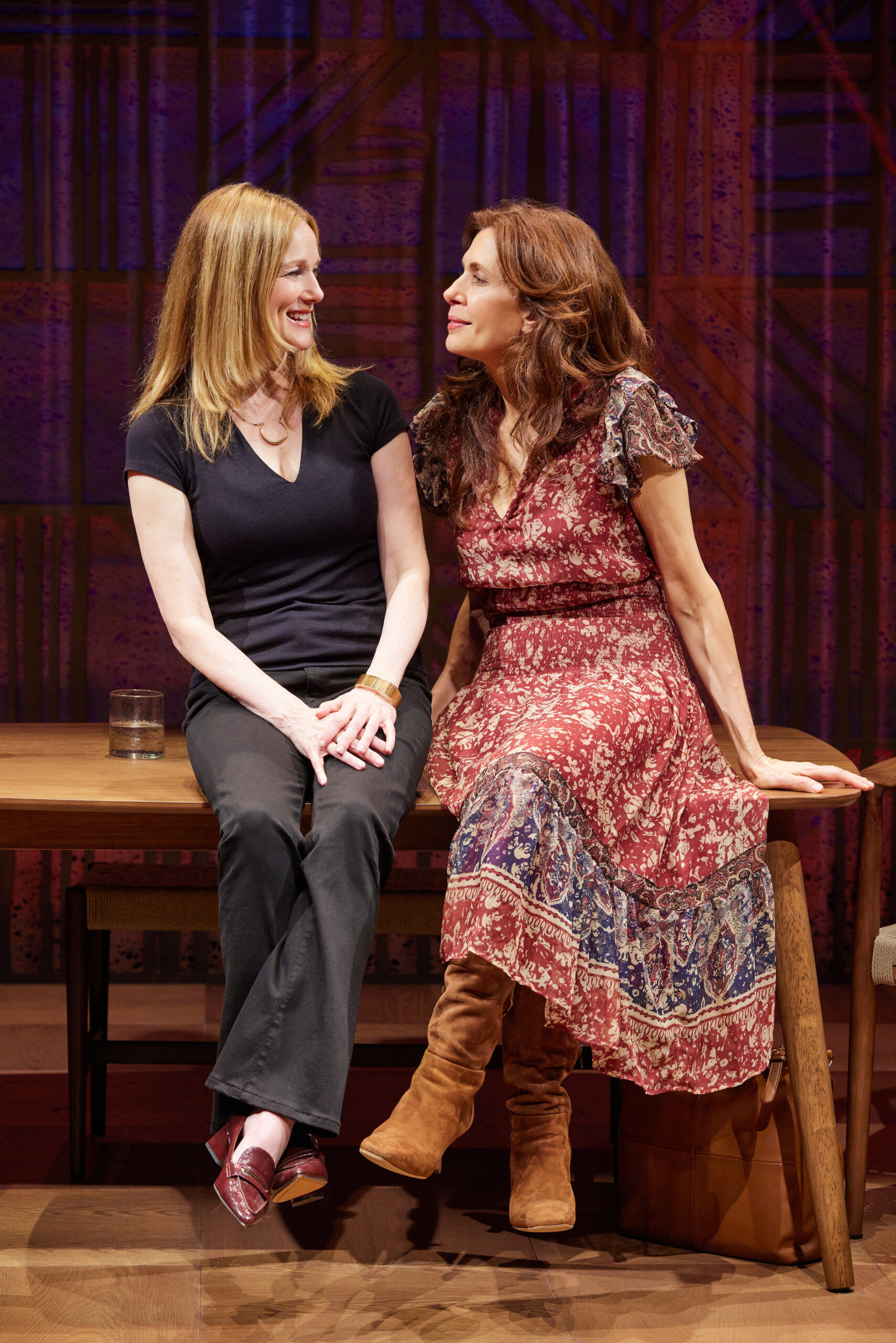In the new Broadway play, Summer, 1976, Diana (Laura Linney), an artist and adjunct professor, says, “I am, in a limited but real sense, ‘known.’“ She’s speaking of her art, which has finally achieved modest success, but in many ways, reflecting on a life-long but tumultuous friendship with Alice (Jessica Hecht).
The pair first meets through a coupon-exchange babysitting co-op conceived by Alice’s husband, a professor and economist. Despite initial impressions — Diana is uptight and opinionated, and Alice is a bit flighty with a penchant for weed — the two establish an intimacy often lacking in traditional marriages or long-term relationships.
Auburn, whose play Proof won the 2001 Pulitzer Prize for Drama, never overtly eludes to sexual overtones between the women. In fact, it’s Alice’s husband who is later discovered to have had an indiscretion with a graduate student hired to repaint their house.

But when the tits begin to sag, and the erections stand less erect, what are we left with? Auburn goes off-road, imagining what Diana and Alice’s lives might look like had they made different choices, abandoning convention and following their hearts instead of their minds. A co-habitation as intimate as a marriage — without the orgasms.
RelatedJockstraps and drag queens are onstage as the Met presents “Champion,” the story of gay boxer Emile Griffith.
Historically, our culture has had an easier time accepting this kind of nuanced intimacy between women. On May 30, Criterion releases a 4K UHD + Blu-ray special edition of 1991’s Thelma & Louise, starring Susan Sarandon and Geena Davis. Written by Callie Khouri and directed by Ridley Scott, the road trip-gone-wrong adventure embraces female empowerment (despite several alternate endings that would have shifted the film’s finale back to a male gaze).
A recent study published in Social Psychology and Personality Science indicates that nearly 70 percent of romances begin as friendship (likely assuming that such pairings are comprised of individuals with compatible sexual orientations). But with an increasing exploration of queer identity and the dismissal of “binary” as the norm, who’s to say that if Thelma and Louise didn’t drive off that cliff that their friendship could have taken a sapphic turn?
In Summer, 1976, Diana and Alice’s sexuality feels adolescent in its lack of complexity. Hovering on the fringes of the era’s sexual liberation, Diana identifies her early experiences not by the connection with her child’s father — ”a boy [she] had met in art school” and had a couple of dates with — but by the nearby sensorial art supplies. For Alice, it was her husband’s “nerdy swagger” as a young academic that got her hot and bothered. The men in their lives seem dim by comparison.
And when our bodies do what they will inevitably do — fail — it is our deepest lovers of mind and matter who come to the rescue.
At one point in the play, Diana, suffering from an intense migraine, calls Alice for help, and when she arrives, discovers her dry-heaving in the bathroom. Alice spends the night, leaving her own child at home to care for Diana and her daughter by bringing her cold compresses, emptying the puke bucket, and brewing a fresh pot of coffee when she emerges from the agony.
Over time, their friendship — or whatever it was — fades, and we’re left wondering, Could that have been more?
Without rewriting history, but rather refocusing on it, we can see that warrior women — leaders of nations, hunters and fighters — aren’t just a heteronormative fairy tale; they have existed for aeons,
Dan Jones, author of “Queer Heroes of Myth and Legend”
Too often, women’s relationships are portrayed through the lens of the men in their lives. The classic “women’s weepies” might have featured strong female leads like Bette Davis and Joan Crawford, but they also made sure those women were punished for their strength in the final frame. Even queer feminist classics like Bound and Carol show queer women struggling to get out from under the control of the men in their lives.
But the legacy of empowered women is as old as our ancient texts.
“Without rewriting history, but rather refocusing on it, we can see that warrior women — leaders of nations, hunters and fighters — aren’t just a heteronormative fairy tale; they have existed for aeons,” writes author Dan Jones of mythical Amazons in Queer Heroes of Myth and Legend.
And while many a queer fantasy may include an island where The Golden Girls’ Sophia, Blanche, Dorothy, and Rose live on in eternity, the entertainment industry still has a long way to go in centering women’s stories. Not a single nomination for Best New Play or Best Revival for this year’s Tony Awards roots its narrative in women’s relationships. While Summer, 1976 makes progress, how many more seasons will pass before sapphic love takes center stage?
Summer, 1976 plays on Broadway at the Samuel J. Friedman Theatre through June 18.
Additional contributions by Henry Giardina.













